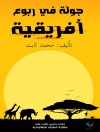In ‘Wanderings in Patagonia; Or, Life Among the Ostrich-Hunters, ‘ Julius Beerbohm presents a vivid tapestry of adventure, blending rich descriptive prose with a keen sociological observation of Patagonia’s landscape and its inhabitants. Drawing upon his experiences as an explorer in the late 19th century, Beerbohm’s narrative weaves together the thrill of the hunt, encounters with indigenous peoples, and the stark beauty of the region’s terrain, marked by a literary style that is both immersive and reflective. The book sits within the broader context of travel narratives of the era, capturing the spirit of exploration that characterized the Victorian period while simultaneously critiquing colonial attitudes towards the places and peoples observed. Julius Beerbohm, a renowned British author and journalist, was influenced by the cultural milieu of his time and his personal ventures into less-charted territories. His encounters with the natural world and diverse cultures shaped his perspectives, which are articulated poignantly in this work. His reflections convey a deep appreciation for the intricate relationship between man and nature, as well as an underlying commentary on imperialism and its consequences. ‘Wanderings in Patagonia’ is an essential read for those intrigued by travel literature, anthropology, and the enigmatic charm of South America. Beerbohm’s adept storytelling not only entertains but prompts critical thought about humanity’s connection to the wild, making it a valuable addition to any literary collection.
A propos de l’auteur
Julius Beerbohm, a lesser-known but vivid figure in the annals of travel literature, crafted a unique niche with his singular work, ‘Wanderings in Patagonia; Or, Life Among the Ostrich-Hunters’ (1877). Though not as prolific as some of his contemporaries, Beerbohm’s adventurous spirit and keen observational skills have captivated readers interested in the raw beauty and untamed wilderness of South America. In his emblematic volume, Beerbohm combines elements of a travelogue with ethnographic tunings, regaling tales of the indigenous peoples and the European settlers who embarked on the perilous yet lucrative hunt for ostrich feathers. His writing, characterized by an informal and engaging style, offers a window into a past cultural zeitgeist driven by exoticism and colonial curiosity. Beerbohm’s work is recognized for its historical value, providing insight into the socio-cultural dynamics of 19th-century Patagonia. Despite the scarcity of biographical details about the author himself, ‘Wanderings in Patagonia’ stands testament to his legacy as an adventurer and chronicler, who managed to encapsulate the essence of the region’s rugged landscape, its fauna, and the diverse array of individuals who sought fortune and adventure at the edge of the known world.












